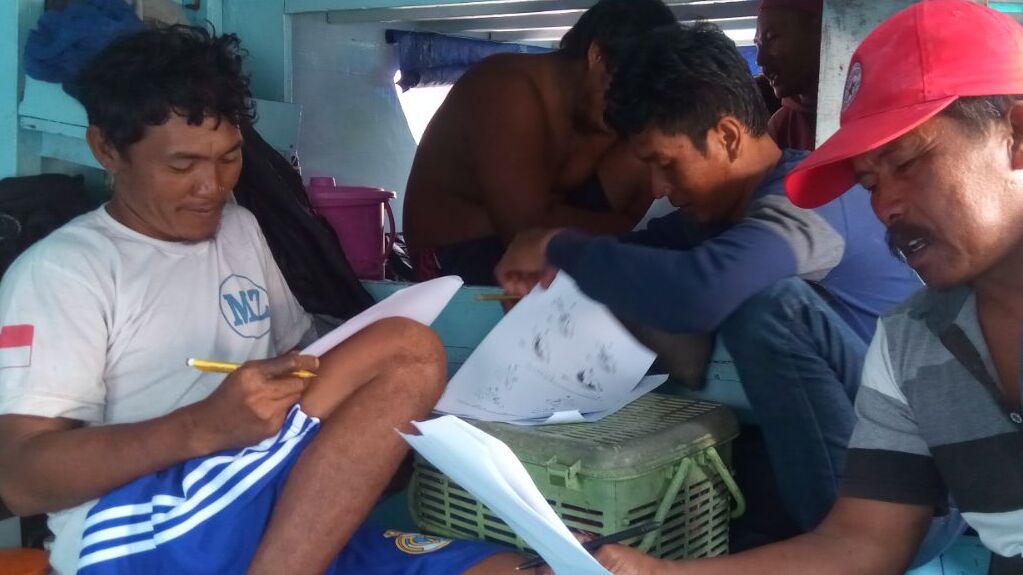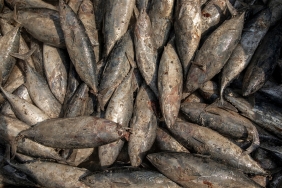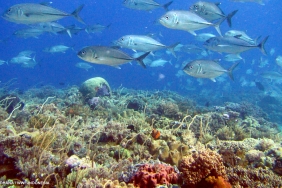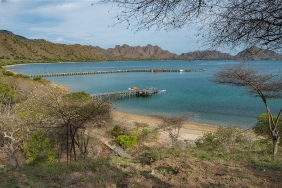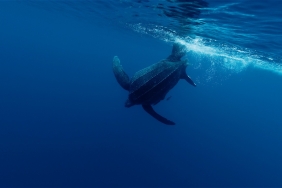STRENGTHENING THE CAPACITY OF PURSE SEINE FISHERS THROUGH CIRCLE NET GEAR BMP TRAINING
More than 40 percent of the annual global tuna catch is caught using FADs. This method is considered efficient for fisheries targeting tuna. However, this method can have a higher proportion of non-target species and juvenile tuna caught than some other methods, which can result in entanglement of non-target species such as sharks and sea turtles. Improvements in fisheries management at the Regional Fisheries Management Organization (RFMO) level, including improved FAD management, are needed to address these challenges and prevent overfishing of target and bycatch species (ISSF, 2019).
Round net fishing gear in Indonesian waters, one of which is in Kendari, also has a high reliance on FADs in its fishing operations. This results in potential bycatch, both juvenile and Endangered, Threatened, and Protected (ETP) species. This case shows that there is a need for a guide that can help captains and all crew members of Circle Net Fishing Gear vessels have the knowledge and understanding related to mitigating and handling bycatch, and apply it when conducting fishing activities.
Considering the above, WWF Indonesia Foundation tried to conduct Better Management Practices (BMP) development and training in order to provide capacity building and understanding of fishermen to minimize and mitigate the large composition of juvenile tuna in the catch of Circle Net Fishing Gear, and handling of bycatch/bycatch of ETP species. The training was held last November 9-10, 2020, at the Kendari Ocean Fishing Port. The training was attended by 48 participants who are captains and crew members from 25 circle net fleets in Kendari.
The training was opened by the Head of Kendari Ocean Fishing Port, Ir Mansur, MM. In his speech, he expressed his support for this activity and hoped that this training would be useful for capacity building of knowledge and information at the fishermen level regarding the practice of catching, handling, and maintaining the quality of catches, as well as the regulations related to capture fisheries practices that have been issued in Indonesia.
At the beginning of the activity, all participants were asked to fill out a pre-test sheet before receiving the training materials. During this training, participants will also receive various interesting and useful materials from related agencies. Some of the materials include: Licensing Policy and Registration of Fishing Vessels in Southeast Sulawesi by Femmy, S.Pi (Coconut Section of Facilities and Infrastructure for Capture Fisheries); Catch Monitoring and Reporting Policy by Recky Pangemanan, S.St.Pi, M.Si (Head of Port Operations and Maritime Affairs); Protected and Endangered Biota and Tuna Catch Size by Jupri, M.St.Pi (Makassar Fisheries and Marine Resources Management Agency); and Handling of Bycatch in Purse Seine Fisheries by WWF Indonesia Foundation.
In the discussion session, participants were given the opportunity to ask questions to all speakers who had given explanations. Before the activity was closed, participants were again asked to fill out a post-test sheet as well as an activity evaluation sheet to become material for future training activities.
Not just providing training, this activity provides a discussion space where participants can share their experiences and challenges they face every day. From this activity, there were many valuable inputs for the material related to bycatch handling practices and mitigation efforts submitted by the participants, which will certainly be very useful for improving this Better Management Practices document to encourage the realization of sustainable capture fisheries practices.

